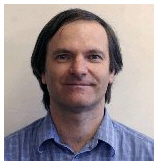PC Forum: Where in the world is search heading?

The final PC Forum panel had major search vendors and scientists sharing their views on search. The panel included Marissa Mayer, director of consumer product at Google (search, news, images, Froogle, local); Udi Manber, former Yahoo chief scientist and president of Amazon's A9 search engine; Alain Rappaport, CEO of Medstory; and Arkady Volozh, CEO of Yandex, the leading Russian search engine and portal. Representatives from Yahoo and MSN were absent.
There weren't any major revelations. The consensus was that search is still a very challenging problem and none of the panelists was willing to predict what search will be like in twenty or five years. But, the common thread was that search has to get better at discovering the information you request with context (provide answers) and with more precision and personalization.
Google's Mayer is looking at providing more personalization capabilities. "We don't know how to do [personalization] well, so we are starting with baby steps, such as knowing where you are as a context," Mayer said.
She said that Google's social networking software, Orkut, is an interesting and rich space in the near term. What your friends are looking at for a particular search could help deliver more relevant and accurate results to users, Mayer said. "We are not planning anything, but it's a logical extension to draw on collective expertise of friends."
Google's primary issues for its search service are comprehensiveness (23 exabytes of data produced per year), relevance (page rank, personalization, etc.) and interaction and presentation (mobile usage, guided navigation, vertical search), she said.
 In the program notes, Mayer discussed how the hidden Web could be mined, such as the ability to scan a badge or tag of an individual and retrieve their bio on a cell phone. She said, "We need to get better not at doing searches, but at providing answers people are looking for. There will be a day when ten HTML links regardless of who you are is not the answer any more." She also said that the idea of everybody getting the same search result isn't reasonable.
In the program notes, Mayer discussed how the hidden Web could be mined, such as the ability to scan a badge or tag of an individual and retrieve their bio on a cell phone. She said, "We need to get better not at doing searches, but at providing answers people are looking for. There will be a day when ten HTML links regardless of who you are is not the answer any more." She also said that the idea of everybody getting the same search result isn't reasonable.

Manber discussed the need for better search tools, and finding the right balance between enabling powerful but more complicated features and ease of use. "In general, people will learn to use search better but have to invest the thinking--we are not in the mind reading business."
Google's Mayer countered that Google's goal isn't to force users to have to think about search, and that the company will continue to keep the search interfaces simple. One of the Google principles is that it your "mother" can't figure out how to use a feature, it shouldn't be released. Manber believes if people know how a search engine works, they will be less prone to making bad queries.
Mander, a former professor of computer science, has more of an engineer's viewpoint, while Mayer (also a computer scientist) thinks more like a user, but they are both right. Search should be really simple to use and deliver great results, but knowing how it works is helpful for power users. The evolution of search technology and the user experience is an iterative process. Solving the myriad of search-related problems, with the amount of data online and data types increasing exponentially, is a world-class challenge. In an interview I did last week with Manber, he said: "We are in the beginning. Search is a solved problem. There are lots of things that can be done. I've been doing search for 15 years and every 5 years it's science fiction, and I expect five years from now it will still be science fiction." As the underlying technology improves (more personalized, natural language, more sources and relevance, guided navigation, etc.), users get more of what they want with less effort.
"Generic search technology works very well for general search, but it starts to degrade not very gracefully when addressing the needs of users in particular verticals, such as healthcare and finance," Rappaport said. "You need to embed knowledge about the domain and automate as much as you can so it can acquire elements of the domain by itself."
It seems like the last five years of search history was more about monetization and continuity than delivering more relevance and personalization. Based on the panel discussion, the next five years might yield more in the way of personalized answers than lists of links...